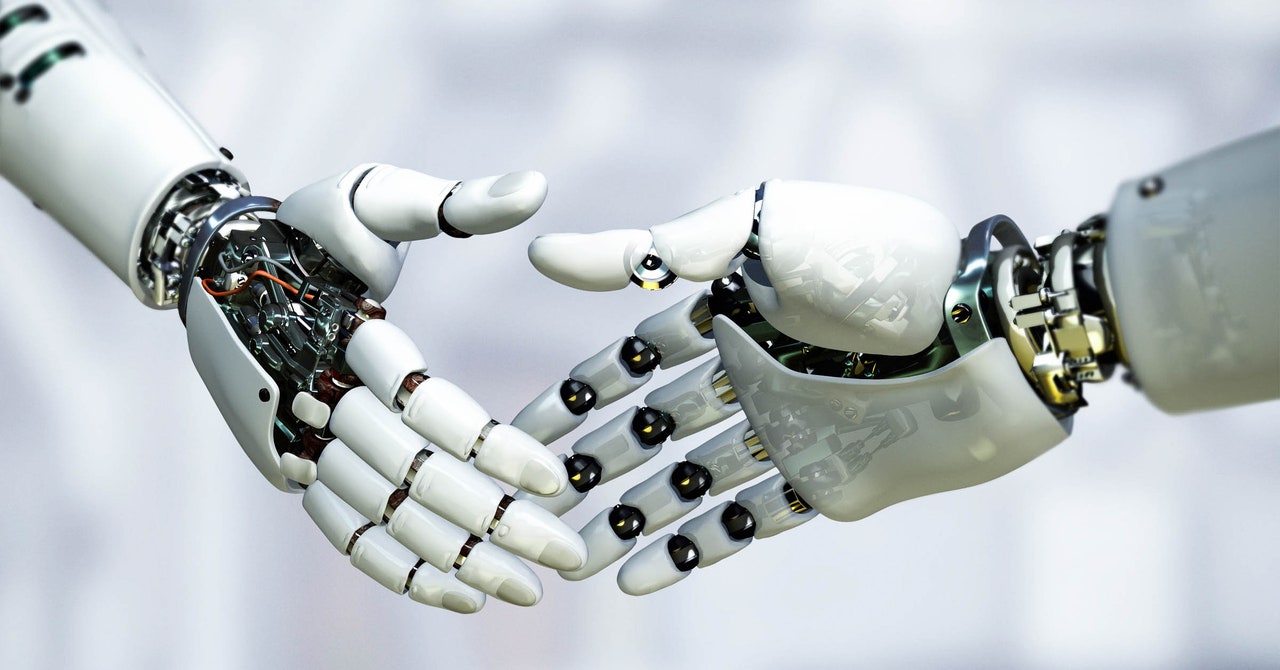Elenoide the android was made to shake your hand. She looks like a Madame Tussad’s rendition of a prim fifth-grade teacher. She’s dressed in a salmon cardigan with scalloped edges, a knee-length striped skirt, and a wig made of ashy blonde human hair. Her hands are warmed by heating pads hidden beneath the palms. During experiments, she wears white butler gloves.
Ruth Stock-Homburg, who studies human-robot interactions at the Technical University of Darmstadt in Germany, enlisted Elenoide—who was originally built in Japan—to participate in a kind of physicalized Turing test last year. In a series of trials, she positioned Elenoide beside a real person (also wearing the butler gloves) and instructed a blindfolded participant to shake each of their hands. If the participant couldn’t discern which hand was skin and bone and which was plastic and pneumatics, Elenoide would pass. Only four of the 15 participants were fooled; the remaining 11 thought her hand was too stiff and its warmth too uneven, meaning Elenoide largely failed to escape the tactile uncanny valley and become a perfect flesh-pressing simulacrum of humanity. But Stock-Homburg hasn’t given up. Not even now, when the very idea of clasping hands—of using physical touch to establish and cement social bonds—teeters toward taboo.
Share Your Stories
Some fine print, required by WIRED: By submitting your Covid Spring story you are agreeing to WIRED’s User Agreement and Privacy Policy found at WIRED.com. All submissions become the property of WIRED, must be original and not violate the rights of any other person or entity. Submissions and any other materials, including your name or social media handle, may be published, illustrated, edited, or otherwise used in any medium.
The Covid-19 pandemic has upended social norms, especially greetings. In France, the government has warned against cheek kissing. In New Zealand, a Maori tribe has banned the traditional hongi greeting, in which people press their noses together and inhale each other’s breath. Throughout the West—and in business settings all over the world—the handshake has been the primary casualty. “I don’t think we should ever shake hands ever again, to be honest with you,” Anthony Fauci, director of the National Institute of Allergy and Infectious Diseases, said in April. The vast majority of Americans approve of and are willing to comply with such social distancing measures, it seems, but the handshake is mourned in a way that crowding into an elevator is not. “T

